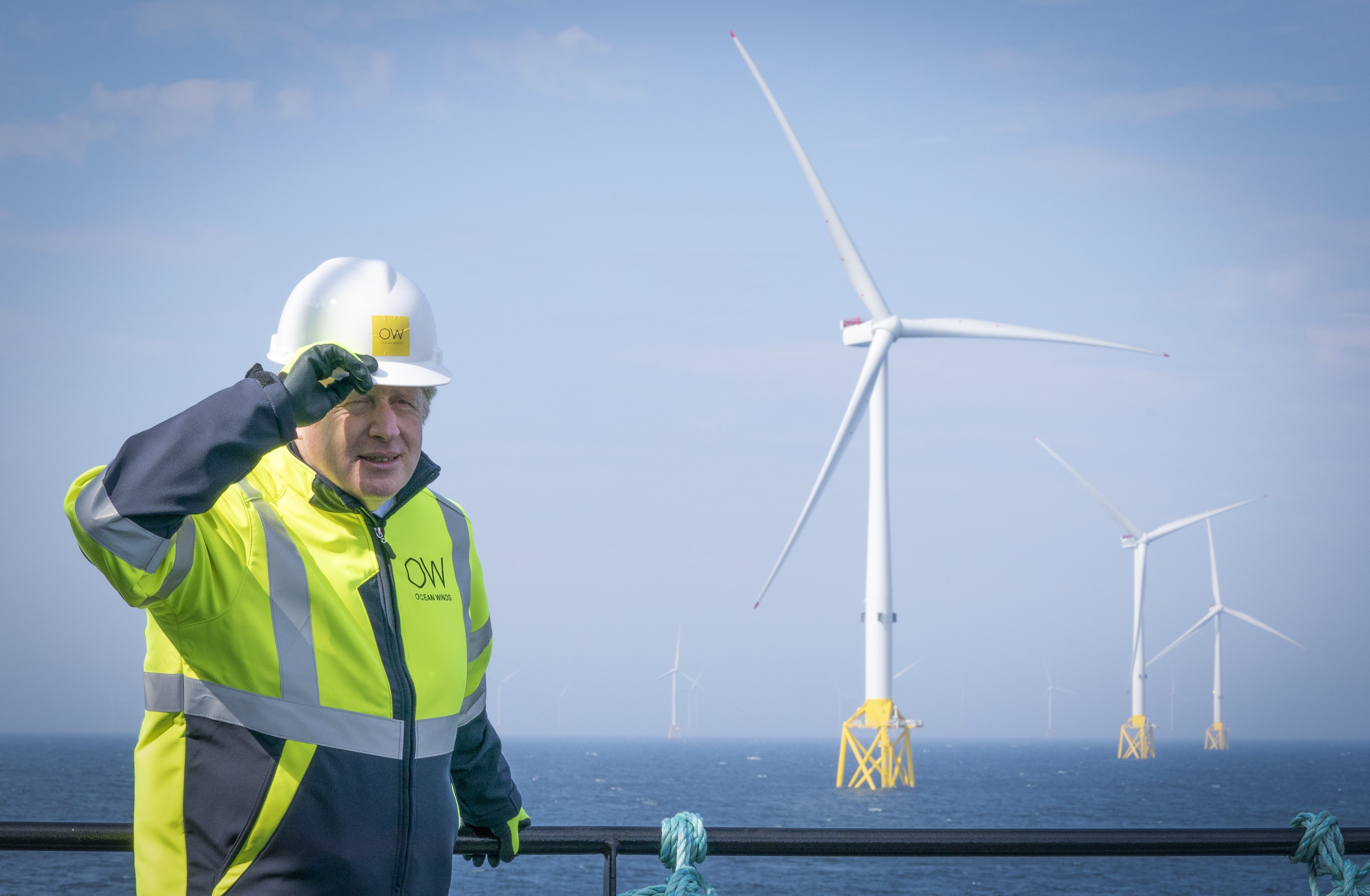Boris Johnson’s energy plans don’t make any sense
Analysis: The prime minister is trying to have his cake and eat it when it comes to weaning the UK off Russian oil

Your support helps us to tell the story
From reproductive rights to climate change to Big Tech, The Independent is on the ground when the story is developing. Whether it's investigating the financials of Elon Musk's pro-Trump PAC or producing our latest documentary, 'The A Word', which shines a light on the American women fighting for reproductive rights, we know how important it is to parse out the facts from the messaging.
At such a critical moment in US history, we need reporters on the ground. Your donation allows us to keep sending journalists to speak to both sides of the story.
The Independent is trusted by Americans across the entire political spectrum. And unlike many other quality news outlets, we choose not to lock Americans out of our reporting and analysis with paywalls. We believe quality journalism should be available to everyone, paid for by those who can afford it.
Your support makes all the difference.Boris Johnson has reiterated the government’s commitment to net zero, while simultaneously saying the UK must supercharge domestic power production from every source – not only through renewables and nuclear, but also through boosting oil and gas production.
The prime minister this week called for the West to “end its dependence” on Russia’s chief commodities – oil and gas – amid the Kremlin’s bloody war in Ukraine, and also provided an insight into the government’s forthcoming energy plans.
Most notably, ministers appear to be setting the stage to argue the war means the UK must expand its own oil and gas operations in the North Sea.
But this does not make sense. Even if you ignore the climate crisis and the decades-long lead times on North Sea drilling, expanding the UK’s fossil fuel recovery can never have the scale required to drive down bills.
This is because gas prices are set by the international market, which is informed by supply and demand far bigger than the UK’s hydrocarbon reserves or appetites for power can impact.
Once you do take into account the worsening climate crisis and the 28-year average lead time for a North Sea drilling project to come on line, it would mean the new supplies of gas and oil – coming from dwindling North Sea reserves – arrive just in time for the 2050 net-zero cut off date.
Nonetheless, there remains a gassy hole to fill. Even with the enormous strides renewables have made in the last decade, gas still accounts for around 37 per cent of all electricity generation in the UK, and home heating systems are still largely gas-fired.
But this can be dealt with using existing gas supplies from the North Sea and non-Russian imports if we can become more efficient – which will also save people money and reduce emissions.
Experts have said the roll out of more renewables alongside better insulation for homes and greater support for heat pumps will not only put us on track to hit our legally binding net-zero targets, but will cut dependency on imported fossil fuels faster than any drilling in the North Sea or fracking in northern England.
Johnson has accused Vladimir Putin of being like a "pusher feeding an addiction in Western countries to his hydrocarbons”. But instead of pursuing the policy paths to end this addiction, the British PM appears to be driving the UK towards maintaining this habit through an expanded home-grown supply.
Russian gas contributes up to 4 per cent of the UK’s total gas usage, but a bigger drive to install insulation and heat pumps would slash this energy requirement as soon as 2027, according to the Energy and Climate Intelligence Unit.
While Johnson is right to recognise the "continuous blackmail" Putin is able to use while the West remains hooked up to Russia’s oil and gas, it is disingenuous to suggest expanding any of the UK’s domestic fossil fuel supplies can: a) rapidly end dependence on Russian gas; b) cut fuel prices; or c) is in line with cutting emissions of climate-altering greenhouse gases.
Johnson’s increasing noises about the expansions of North Sea drilling and a possible return of fracking has already prompted a robust response from a coalition of 37 groups including Greenpeace, Save the Children, Wildlife Trusts and Friends of the Earth, who have urged greater support for households, and a shift away from gas and towards renewables.
Rebecca Newsom, head of politics at Greenpeace UK said: “This is a fossil fuel crisis, and new fossil fuels from the likes of fracking or new North Sea oil and gas aren’t going to solve our problems.
"We can reach true energy freedom and stand up to Putin, but that needs the government to back properly funded measures to support households, accelerate renewables and properly fund home upgrades to reduce our use of gas altogether. Otherwise this risks being yet another plan that props up our dependence on volatile and expensive fossil fuels at just the moment we can least afford it.”
Join our commenting forum
Join thought-provoking conversations, follow other Independent readers and see their replies
Comments